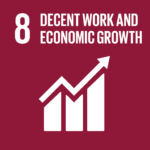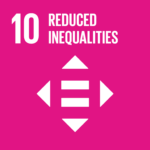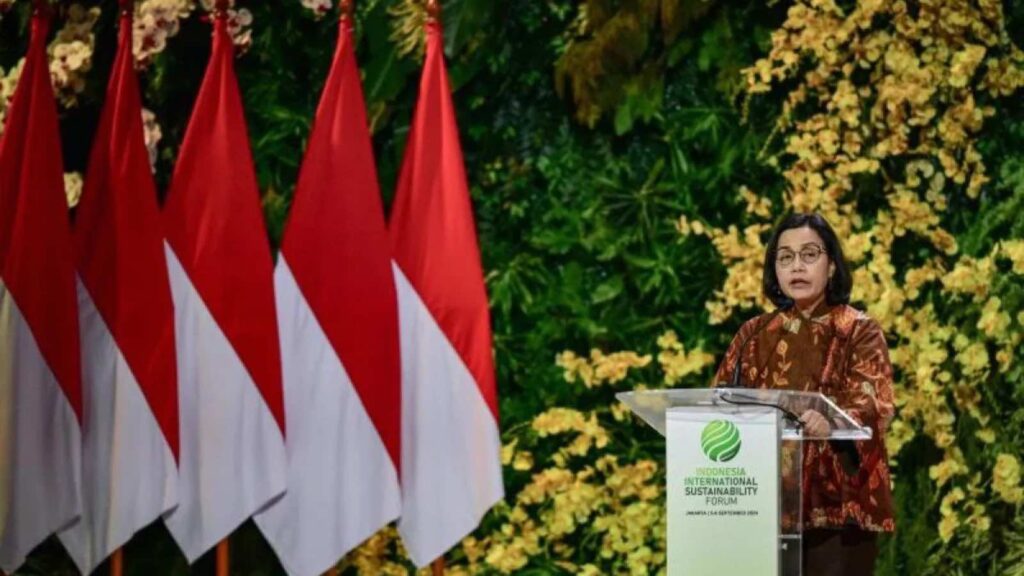Climate change could slash Indonesia’s GDP by 10% by 2025: Minister Indrawati.
JAKARTA — Indonesia faces a potential decline of up to 10 percent in its gross domestic product (GDP) by 2025 if urgent action is not taken to address climate change, Finance Minister Sri Mulyani Indrawati cautioned during the Indonesia International Sustainability Forum (ISF) 2024 held in Jakarta on Friday. The minister’s warning underscores the severe economic repercussions of climate change on Southeast Asia’s largest economy and highlights the broader challenges of balancing economic growth with environmental sustainability.
RELEVANT SUSTAINABLE GOALS




A Looming Economic Threat
Minister Indrawati emphasized the substantial efforts required to achieve even modest GDP growth in the face of escalating climate risks. “Every time we try to increase GDP by 3 percent, as in 2024 and 2025, it requires significant effort, especially with many negative risks like climate change,” she noted. The anticipated 10 percent decline in GDP would not only stall economic progress but also hinder crucial initiatives to reduce poverty and generate jobs, particularly for the younger population.
Rising global temperatures and an increase in the frequency of natural disasters pose additional threats, including severe damage to infrastructure. The cost of repairs could place a heavy burden on the national budget, further complicating economic recovery efforts.
Socioeconomic and Political Ramifications
Beyond economic impacts, climate change could exacerbate sociopolitical instability, disproportionately affecting poorer communities and widening social disparities. This, in turn, could heighten political tensions across the country. “We understand that climate change needs to be addressed immediately,” Indrawati stressed, highlighting that while ASEAN shows economic resilience and growth, it is not immune to the intersecting threats of climate change and geopolitical shifts.
Indrawati pointed to the Asian Development Bank’s (ADB) estimates that ASEAN’s GDP could fall by up to 11 percent due to the impacts of climate change. Despite ASEAN contributing only about 7 percent of global emissions, the region faces the dual challenge of continuing its development trajectory while also working to reduce CO2 emissions.
Urgency of Decarbonization in ASEAN
The Finance Minister underscored the urgency of decarbonization efforts within the ASEAN region, especially in light of the World Meteorological Organization’s report that 2023 was the hottest year on record. “Decarbonization efforts in ASEAN must prioritize optimizing public and private investment,” she stated, calling for the engagement of all stakeholders in the climate change dialogue.
Indrawati also welcomed the ASEAN Taxonomy for Sustainable Finance, now in its third edition, which includes transition guidelines for key sectors such as transportation, storage, construction, and real estate. This framework aims to provide clear pathways for industries to align with sustainable practices and reduce their carbon footprint.
Indonesia’s Commitment to Emission Reductions
As part of its national commitment, Indonesia has set a target to reduce greenhouse gas (GHG) emissions by 31.89 percent by 2030 without international assistance. With international support, the country aims for a more ambitious reduction target of 43.2 percent by the same year. To achieve these goals, the Indonesian government has outlined a need for approximately US$281 billion to fund its energy transition and meet its carbon reduction commitments.
“We need US$281 billion to meet our commitment to reducing CO2 emissions for the energy transition,” Indrawati said, underlining the substantial financial resources required for Indonesia’s climate action plans.
Minister Indrawati’s remarks at the ISF 2024 serve as a stark reminder of the interconnected challenges of climate change, economic stability, and social equity. As Indonesia and the broader ASEAN region navigate these complex dynamics, the engagement of public and private sectors, along with robust policy frameworks, will be crucial in mitigating the adverse effects of climate change and steering towards a more sustainable and resilient future.
Lead image courtesy of ANTARA (Finance Minister Sri Mulyani speaks at the International Sustainability Forum (ISF) 2024 in Jakarta on September 6, 2024).




